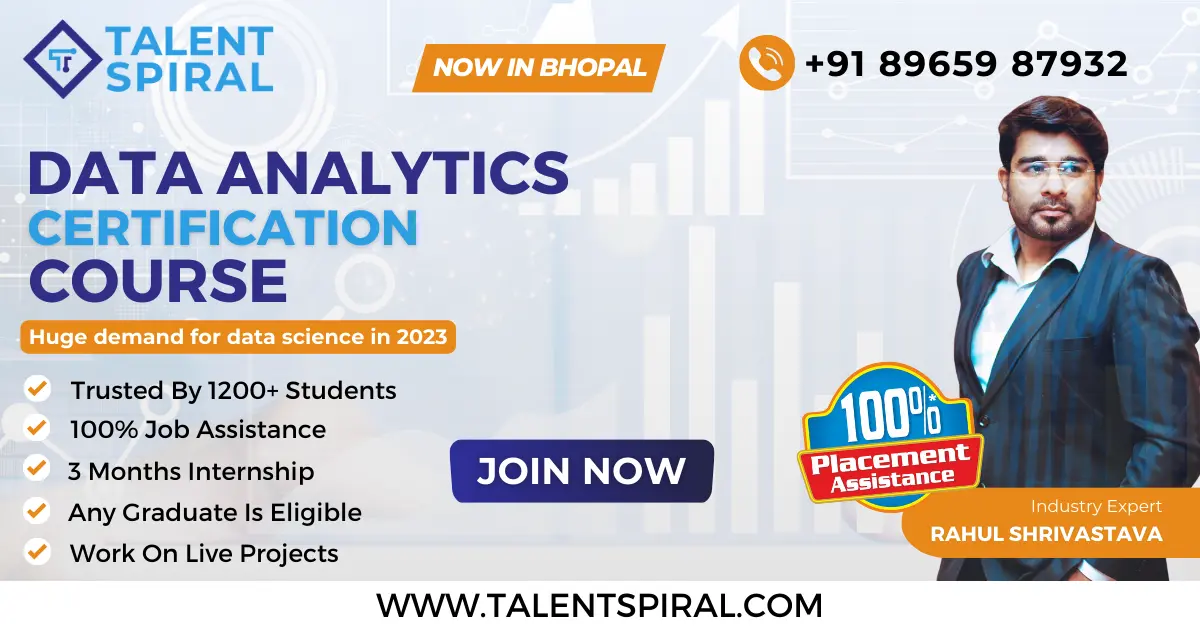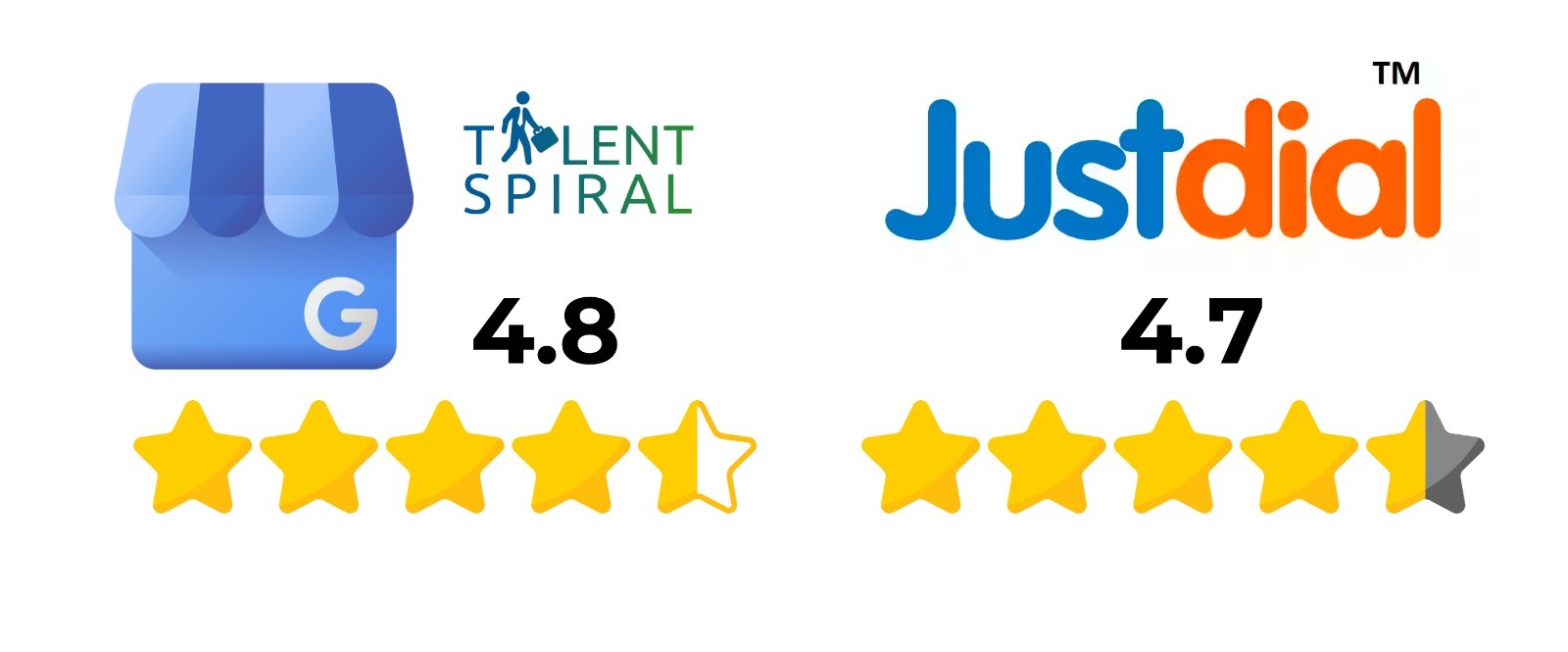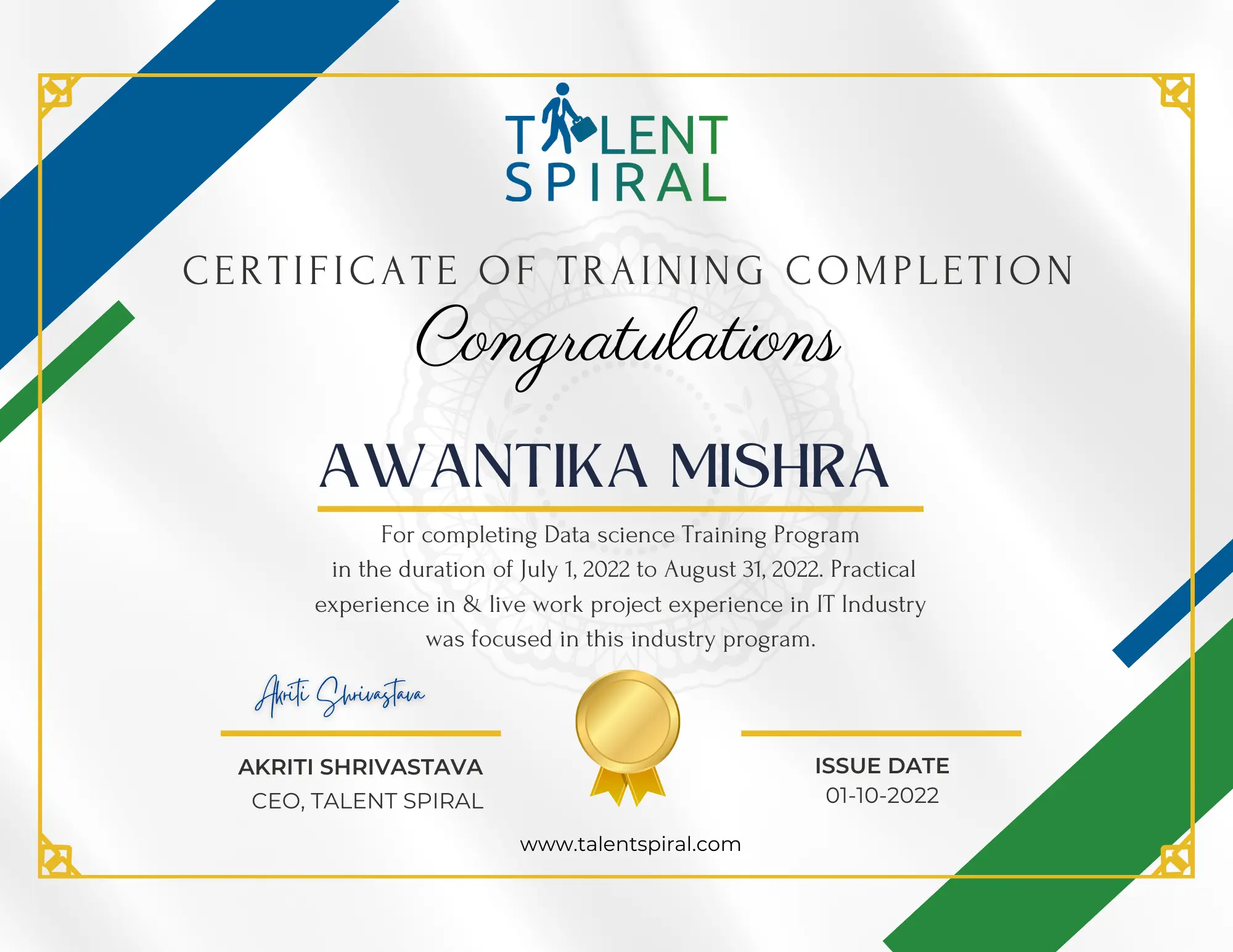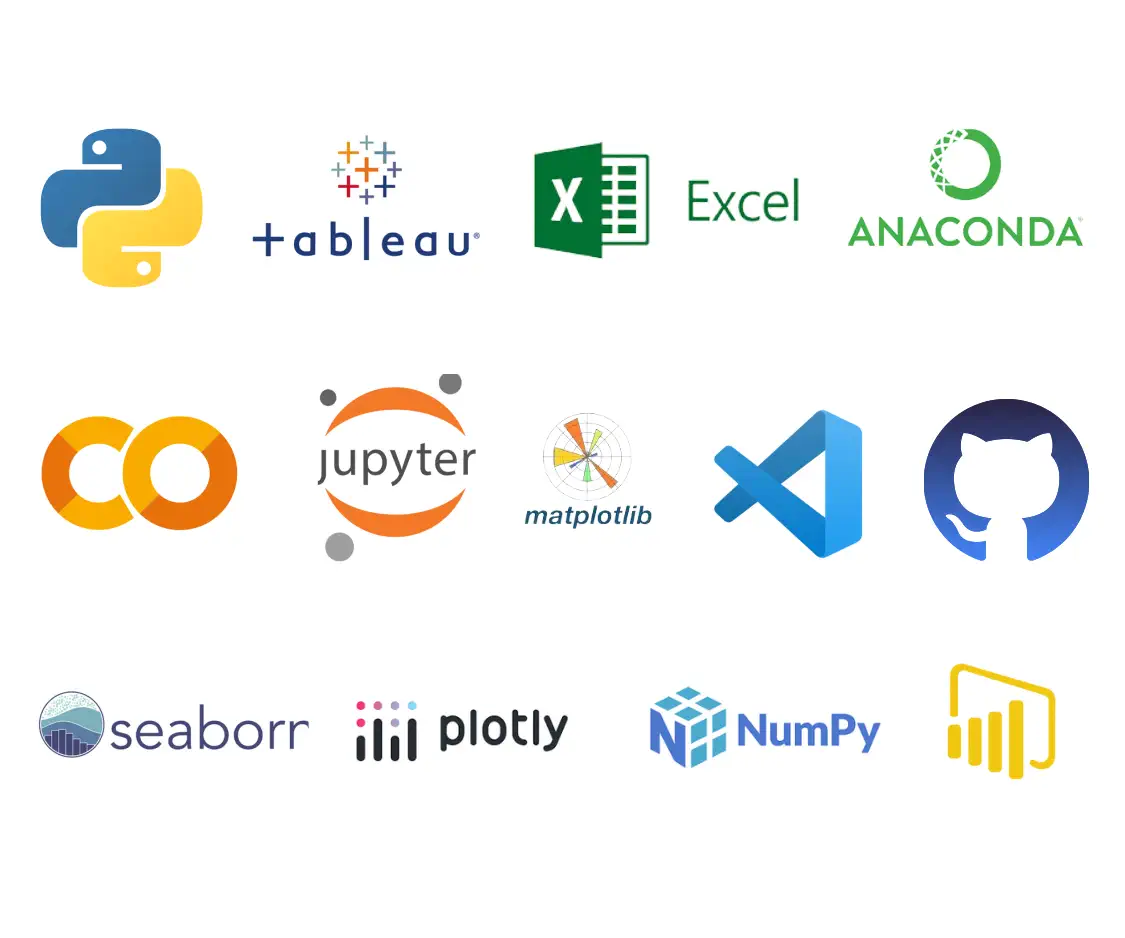Course Modules
The Data Analytics Course offers participants the opportunity to actively engage with real-world datasets through hands-on exercises and practical projects. By applying Data Analytics concepts and techniques in a practical setting, participants will develop a portfolio of projects that demonstrate their skills to potential employers or clients. Throughout the course, there is a strong emphasis on utilizing popular data science tools such as Python, NumPy, Pandas, scikit-learn, Matplotlib, and Seaborn for tasks like data analysis, modeling, and visualization.
Additionally, participants will gain a comprehensive understanding of data ethics, privacy considerations, and data security practices. The course is conveniently delivered online, providing access to course materials, video lectures, and discussion forums that foster interactive learning. Upon completion of the course, participants will have acquired a solid foundation in data analytics, equipping them with the ability to apply analytical techniques, construct predictive models, and extract valuable insights from extensive datasets.
Understanding of Data Analytics
Data Analysis and Visualization
Excel for Data Analysis
Tableau for Data Visualization
Python for Data Analytics
Data exploration and preprocessing
Data visualization and storytelling
Data-driven decision making and inference
Ethical considerations
Final project
Data acquisition
Beginners
Professionals Transitioning into Data Analytics
Analysts and Researchers
Business Professionals
Programmers and Developers
Month 1: Foundations of Data Analysis
Week 1: Introduction to Data Analytics & Tools
Week 2: Excel for Data AnalysisBasic Excel Functions & Formulas
Month 2: SQL, Python & Data Visualization
Week 3: SQL for Data Analysts
Week 4: Python for Data Analysis
Week 5: Data Visualization with Python, Power BI
Month 3: Business Intelligence, Case Studies & Career Readiness
Week 6: Business Intelligence & Google Analytics
Week 7: Statistics & Data Analysis Techniques
Week 8: Real-World Capstone Project
Week 9: Resume & Portfolio Building
Week 10: Mock Interviews & Job Readines
Week 11: Internship & Placement Support
Week 12: Final Assessments & Hackathon
Data Analyst
Data Scientist
Data Architect
Data Visualization Specialist
Data Consultant
Business Intelligence Analyst
Data Engineer
Research Scientist
Data Analytics Manager
Amazon
Microsoft
Apple
Netflix
Uber
Airbnb
IBM
Tesla
















